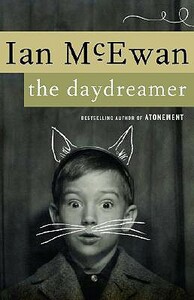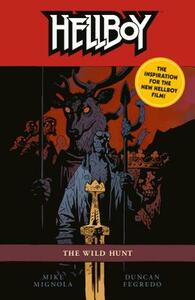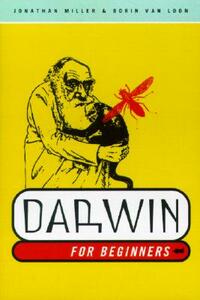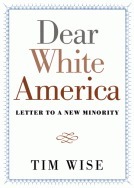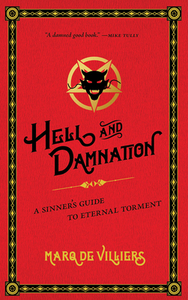Take a photo of a barcode or cover
kevin_shepherd's Reviews (563)
When a novel starts out rather dreadfully but gradually and steadily improves I am never really sure if it is the author who is finding their footing or if it is me who is subconsciously lowering my expectations.
Children’s books aren’t McEwen’s usual stock and trade and it shows. His early chapters, each a foray into the imagination of a nine year old boy, feel a wee bit stilted and contrived. Still, I like what McEwan is trying to do even if it is, at times, unwieldy and off the mark...
“..the burglar struck again, and carried off a box of expensive perfumed soap and a silver-topped walking-stick... The stick had belonged to her great-grandfather, a famously fierce missionary. He used it to beat African children when they didn’t study their Bible lessons.”
Children’s books aren’t McEwen’s usual stock and trade and it shows. His early chapters, each a foray into the imagination of a nine year old boy, feel a wee bit stilted and contrived. Still, I like what McEwan is trying to do even if it is, at times, unwieldy and off the mark...
“..the burglar struck again, and carried off a box of expensive perfumed soap and a silver-topped walking-stick... The stick had belonged to her great-grandfather, a famously fierce missionary. He used it to beat African children when they didn’t study their Bible lessons.”
I have this amazingly talented friend who can draw/paint in almost any style imaginable (Impressionism, Surrealism, Photorealism, PopArt, …the list is extremely long). He has designed and illustrated his own comic books, worked as a portrait artist and a graphic designer—the guy is freakishly gifted! Every time we get together he loans me a comic or a graphic novel he wants me to experience. Because of him I have come to know and appreciate artists like Theo Ellsworth and Michael Allred and Charles Burns. Now I can add Duncan Fegredo to that list.
Fegredo’s artwork is fantastic. If this is the way Hellboy has always been presented then it is no surprise why this character is so popular.
But… Every time I get more than a few pages into a superhero story I start to grow disinterested. I’ve just never really been a fan of the genre. Yes people I know and care about are HUGE fans—I get that (sorta). I apparently just don’t have the gene that makes one drool over a Batman comic or a Spider-Man movie. I have tried to care, really I have; I’ve put in the time, I’ve made the effort; when it comes to superheroes—even dark ones like Hellboy and Deadpool—I am awash in a sea of apathy.
Give me a superhero that can’t fly or punch through brick walls (too cliché!). And how about a male character without six pack abs—or a female one with small breasts?
Personally, my “superpower” is that I work every day with fundamentalist anti-vaxers who think the earth is only six thousand years old and I haven’t strangled any of them (yet), not a single one. Now THAT is my idea of a superpower!
________________________________________
If you have a few moments, check out my friend’s art gallery and see for yourself what an amazingly talented (and kinda crazy) individual he is:
https://kevinstarkart.com/
Fegredo’s artwork is fantastic. If this is the way Hellboy has always been presented then it is no surprise why this character is so popular.
But… Every time I get more than a few pages into a superhero story I start to grow disinterested. I’ve just never really been a fan of the genre. Yes people I know and care about are HUGE fans—I get that (sorta). I apparently just don’t have the gene that makes one drool over a Batman comic or a Spider-Man movie. I have tried to care, really I have; I’ve put in the time, I’ve made the effort; when it comes to superheroes—even dark ones like Hellboy and Deadpool—I am awash in a sea of apathy.
Give me a superhero that can’t fly or punch through brick walls (too cliché!). And how about a male character without six pack abs—or a female one with small breasts?
Personally, my “superpower” is that I work every day with fundamentalist anti-vaxers who think the earth is only six thousand years old and I haven’t strangled any of them (yet), not a single one. Now THAT is my idea of a superpower!
________________________________________
If you have a few moments, check out my friend’s art gallery and see for yourself what an amazingly talented (and kinda crazy) individual he is:
https://kevinstarkart.com/
A clear and concise overview of Darwin's scientific endeavors and the incontrovertible relevance of those endeavors to our understanding of life and its processes.
This is no children's book. For example: In the description of the isolating mechanisms that inhibit inter-species copulation, the authors drop an F-bomb in what, I assume, is an attempt at humor(?). Whatever the reasoning, it seemed ill-advised and in questionable taste.
All missteps aside, the enthusiasm the authors show for Darwin and his accomplishments is infectious. I would highly recommend this book to any ADULT who has even the slightest scientific proclivity or interest. Beginners or otherwise.
"...in recent years there have been last ditch attempts to reinstate some, indeed any, alternative to the Darwinian theory of evolution. But the death of Darwin has been greatly exaggerated." (pg. 173)
This is no children's book. For example: In the description of the isolating mechanisms that inhibit inter-species copulation, the authors drop an F-bomb in what, I assume, is an attempt at humor(?). Whatever the reasoning, it seemed ill-advised and in questionable taste.
All missteps aside, the enthusiasm the authors show for Darwin and his accomplishments is infectious. I would highly recommend this book to any ADULT who has even the slightest scientific proclivity or interest. Beginners or otherwise.
"...in recent years there have been last ditch attempts to reinstate some, indeed any, alternative to the Darwinian theory of evolution. But the death of Darwin has been greatly exaggerated." (pg. 173)
First, let me say that the contents of this small book represent an unmitigated threat to the status quo. Consequently, anyone who feels menaced by the deterioration of white privilege may think it necessary to attack Tim Wise’s credibility, his methodology, and his statistical sources. Fair enough. Fire away.
However, there are a few derogatory tactics that one should forgo if one wishes to avoid looking like a complete jackass…
One. Read the material. If you intend to criticize Mr. Wise you should really have your proverbial ducks in a row. Saying things like, “I didn’t feel enlightened after skimming the material” puts you on the fast-track to jackassdom.
Two. Calling out Wise as a “white man taking advantage of his white privilege to make money,” or better still “a white man who thinks only white people are to blame for every problem in American society” proves beyond all reasonable doubt that you either didn’t read the material or you are simply too obtuse to comprehend the material [see item One].
Three. Be certain that the tone you project onto the author is not, in fact, your own. Describing the book as, “delivered with too much anger” or that it has a “purely angry tone” is a highly arbitrary assertion to make of printed material, especially when the audiobook, read by Tim Wise himself, conveys no animosity or hostility whatsoever.
And Four. Be sure your negative is actually a negative. Even if the author was indeed pissed off (he’s not), shouldn’t he be? Shouldn’t anyone who looks at centuries of oppression, subversion and injustice be angry? Should not the lies, the overt manipulations, the deceit, spark a little hostility in your tone? And now you’re dismissing the entire presentation because you mistook the author’s zeal and urgency for anger? Seriously bro, stop being such a jackass.
However, there are a few derogatory tactics that one should forgo if one wishes to avoid looking like a complete jackass…
One. Read the material. If you intend to criticize Mr. Wise you should really have your proverbial ducks in a row. Saying things like, “I didn’t feel enlightened after skimming the material” puts you on the fast-track to jackassdom.
Two. Calling out Wise as a “white man taking advantage of his white privilege to make money,” or better still “a white man who thinks only white people are to blame for every problem in American society” proves beyond all reasonable doubt that you either didn’t read the material or you are simply too obtuse to comprehend the material [see item One].
Three. Be certain that the tone you project onto the author is not, in fact, your own. Describing the book as, “delivered with too much anger” or that it has a “purely angry tone” is a highly arbitrary assertion to make of printed material, especially when the audiobook, read by Tim Wise himself, conveys no animosity or hostility whatsoever.
And Four. Be sure your negative is actually a negative. Even if the author was indeed pissed off (he’s not), shouldn’t he be? Shouldn’t anyone who looks at centuries of oppression, subversion and injustice be angry? Should not the lies, the overt manipulations, the deceit, spark a little hostility in your tone? And now you’re dismissing the entire presentation because you mistook the author’s zeal and urgency for anger? Seriously bro, stop being such a jackass.
A positively heavenly presentation of the history and evolution of the concept of Hell, spanning some five thousand years of recorded human history. De Villiers is both a scholar and a skeptic and I, for one, found his approach as entertaining as it was educational.
“As the Middle Ages progressed, ...Satan became a creature with a bifurcated penis as long as an alder bush and made of iron, with scales and semen as cold as ice, who mated with an ever-increasing number of witches, anus and vagina at once (bifurcation has its advantages...)”
“As the Middle Ages progressed, ...Satan became a creature with a bifurcated penis as long as an alder bush and made of iron, with scales and semen as cold as ice, who mated with an ever-increasing number of witches, anus and vagina at once (bifurcation has its advantages...)”
No study of Dark Matter is legitimate without frequent references to Vera Rubin (Vera Florence Cooper Rubin, 1928 - 2016). She is the astronomer who’s observations and calculations provided the first evidence of Dark Matter. Rubin’s rock-solid mathematics exposed a discrepancy between what conventional models predicted and what was actually observed. Her work strongly suggested that there were vast elements of the universe (roughly 96%!) still unaccounted for.
I am convinced that the best indicator of a truly great scientific discovery is the “scoff.” If you, as an astronomer, stand before an assembly of your peers and give a presentation—one that is augmented with slides and notes and pages and pages of calculus—and, at its conclusion, everyone stands and applauds then there is a good chance that you need to rethink your hypothesis. Historically speaking, all the great ideas are met with tepid golf claps, indifference, or outright animosity. Vera Rubin’s thesis, one that eventually changed the course of modern cosmology, was initially greeted with an eye roll and a scoff. The scoff is key. If your dissertation is scoffed then you know you’re on to something extraordinary (just a thought).
There is much more to Richard Panek’s book than the exaltation of Vera Rubin, but Panek is nothing if not cognizant and reverent of her importance. Rubin gets substantial ink in this engaging scientific chronology and that is reason enough to recommend it.
I am convinced that the best indicator of a truly great scientific discovery is the “scoff.” If you, as an astronomer, stand before an assembly of your peers and give a presentation—one that is augmented with slides and notes and pages and pages of calculus—and, at its conclusion, everyone stands and applauds then there is a good chance that you need to rethink your hypothesis. Historically speaking, all the great ideas are met with tepid golf claps, indifference, or outright animosity. Vera Rubin’s thesis, one that eventually changed the course of modern cosmology, was initially greeted with an eye roll and a scoff. The scoff is key. If your dissertation is scoffed then you know you’re on to something extraordinary (just a thought).
There is much more to Richard Panek’s book than the exaltation of Vera Rubin, but Panek is nothing if not cognizant and reverent of her importance. Rubin gets substantial ink in this engaging scientific chronology and that is reason enough to recommend it.
“Liberty, equality, fraternity, or death—the last, much the easiest to bestow, O Guillotine!”
By my count, there are at least 52 executions in this Dickens’ classic. At 362 pages (my edition in hand) that’s roughly a severed head every seven pages. Impressive!
By my count, there are at least 52 executions in this Dickens’ classic. At 362 pages (my edition in hand) that’s roughly a severed head every seven pages. Impressive!
The mental images conjured up by Lovecraft’s prose are a hundred times more disturbing than any CGI laden film adaptation could ever hope for. The best (most frightening) horrors are the ones we don’t see.
There is nothing here that diminished my love and respect for Jimi. Indeed, his flaws (and there were several) seem to make him more relatable. Charles Cross is a fan (that much is obvious) but he writes with just enough detachment to keep things in perspective. This is best read with musical interludes of ‘Electric Ladyland’ and ‘Are You Experienced.’
The Brother You Choose: Paul Coates and Eddie Conway Talk about Life, Politics, and the Revolution
The life and times of Eddie Conway and Paul Coates. Whether speaking individually or in conversation, these guys are raconteurs of the turbulent 1960s, the Vietnam War, the civil rights movement, and the Black Panther Party.
In 1971, Eddie Conway was the Security Lieutenant for the Baltimore BPP. He was targeted by J. Edgar Hoover’s FBI, as were most active Black Panthers, as a threat to national security and was subsequently prosecuted and convicted for a crime he did not commit. His fellow Panther, Paul Coats, spent the next 43 years tirelessly working to get Eddie out of prison. Their stories, Paul’s devotion and Eddie’s eventual exoneration, are inspirational.
Books about institutional racism in America tax the hell out of my stamina. I get so emotionally fired up, so disgusted and appalled with the systemic hypocrisy, that I wind up intellectually and psychologically exhausted.
Fortunately, when I get bone-weary, I can always take a break and get my shit back together. I have the advantage of putting all this crap aside and going about my life without being constantly reminded (via media and micro aggression) that inequality still resides here. Security personnel never follow me around a department store. Old ladies on the street never clutch their purses when I walk by. The last time the cops pulled me over was eighteen years ago, and that was for doing 90 in a 75 (and even then all I got was a warning). People like Eddie and Paul can’t take a breather from all the BS like I can because they can’t slip out of their skin. I’m not stoking white guilt here, I’m acknowledging that I have privileges in this country that POCs don’t have.
Thank you Susie Day for your transcription of these conversations and for formatting them into a book form that is as educational as it is engaging. This one wore me out (and that’s a compliment).
In 1971, Eddie Conway was the Security Lieutenant for the Baltimore BPP. He was targeted by J. Edgar Hoover’s FBI, as were most active Black Panthers, as a threat to national security and was subsequently prosecuted and convicted for a crime he did not commit. His fellow Panther, Paul Coats, spent the next 43 years tirelessly working to get Eddie out of prison. Their stories, Paul’s devotion and Eddie’s eventual exoneration, are inspirational.
Books about institutional racism in America tax the hell out of my stamina. I get so emotionally fired up, so disgusted and appalled with the systemic hypocrisy, that I wind up intellectually and psychologically exhausted.
Fortunately, when I get bone-weary, I can always take a break and get my shit back together. I have the advantage of putting all this crap aside and going about my life without being constantly reminded (via media and micro aggression) that inequality still resides here. Security personnel never follow me around a department store. Old ladies on the street never clutch their purses when I walk by. The last time the cops pulled me over was eighteen years ago, and that was for doing 90 in a 75 (and even then all I got was a warning). People like Eddie and Paul can’t take a breather from all the BS like I can because they can’t slip out of their skin. I’m not stoking white guilt here, I’m acknowledging that I have privileges in this country that POCs don’t have.
Thank you Susie Day for your transcription of these conversations and for formatting them into a book form that is as educational as it is engaging. This one wore me out (and that’s a compliment).
